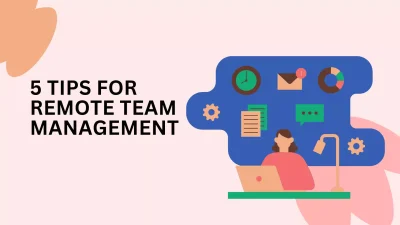From the digital era, there is an explosion of creativity, and entrepreneurs are offering innovative, disruptive, and the innovative business ideas. But with such innovation comes great risk for idea theft. Safeguarding your digital business idea is not simply a security issue, but also a means to secure your competitive advantage in a crowded market.
If you’re building a digital business, such as an app or SaaS platform, or an e-commerce site, for example, making the right legal moves to safeguard your intellectual property can save you time, money, and potential headaches down the road.
In this post, I’m going to show you actionable methods to legally guard your digital business idea so that your invention feels safe and you get credit for your actions.
Why You Must Protect a Digital Business Idea
You have your digital business idea, your dream… It’s more than an idea, it’s the very core of your business. Your idea could easily be snatched up by competitors, partners, or employees if you haven’t taken the necessary precautions to protect it.
It is of utmost importance that you protect it legally, and here are a few reasons why:
- Hack for reducing stealing risk: Once your idea is out there, whether you pitched for it or launched a product demo, third parties can just copy/paste/… the feature before you go to scale.
- Building Ownership: Legal safeguards actually tie the idea to you, and can provide you the competitive edge as well as credit where it is deserved.
- Add Business Value: Protecting an idea gives your business additional real value. Investors are the ones who usually want startups to have strong intellectual property (IP).
Legal Protection of a Digital Business Idea
Having a great idea, keeping it safe is a different matter. We summarize the important steps towards supporting your digital business idea legally in this guide.
Non-disclosure Agreements (NDAs) To Assure Confidentiality
An NDA (Non-Disclosure Agreement) is a legally binding contract that prevents the recipient (your friend) from discussing any sensitive information you divulge to them. No matter the case, if you’re about to pitch your idea to potential investors, contractors or collaborators, NDAs should always be part of the discussion.
Here are some examples of when NDAs are necessary:
- Meeting with a software developer to talk about app development.
- Explaining your start-up business idea to potential partners.
- You share early Prototypes or design drafts with external vendors or partners.
Ensure the NDA covers:
- The specific limits to confidentiality.
- Specified consequences for non-compliance.
- The length of time over which confidentiality obligations survive.
Pro Tip: Have a lawyer create or review your NDA to make it as complete and enforceable as possible.
Trademark Your Brand to Protect It
Your trademark is a safeguard of essential aspects of your brand identity, such as your business name, logo, or tagline, and maybe even specific sounds. This will prevent your competitors from stealing your branding by using something as close as possible.
Here’s how to get a trademark in the U.S.:
- Search marks that are already registered to confirm originality.
- How to apply for a trademark in the US file an application with the US office?
- Protect and enforce your trademark rights.
Example: Google’s colorful logo is trademarked in every country, and the company is the only entity that is allowed to use it.
Copyright Your Content
Copyright. If your digital business includes creative products like writing, graphics or illustrations, designs, or music, copyright law is your initial line of defense. You own the rights to these materials, no one else is legally able to copy or distribute your work.
For copyright protection:
- Make the content (this can also literally be a software code or website design).
- If you’re looking for more legal leverage, register the content with the U.S. Copyright Office.
Note: As soon as you create the contents, copyright applies to it automatically, however, registration allows you to enforce your copyright in court.
Protect Original Innovations with Patents
If the value of your business is predicated on some sort of new technology, algorithm, or procedure, then a patent can provide strong rights protection. A patent precludes others from making, using, or selling your invention without your permission.
Types of patents in the U.S.:
- Utility Patent (for new inventions such as software or a machine).
- Design Patent (provides protection for the design of a product).
- Plant Patent (applicable for new plant varieties, not so helpful for tech companies).
Note: Patents are difficult to obtain, time-consuming, and expensive. Consult with a patent lawyer to make sure that your idea is one that is legally considered to qualify for a patent.
Lock Down Your Domain Name and Social Handles
Both your domain and your social media community are crucial components of your brand. Getting these now, means they’re tied to your online business, and more importantly, others can’t cyber-squat on or take your brand equity.
How to protect online assets:
- Buy your domain name early from reliable domain providers like Namecheap or GoDaddy.
- Keep a consistent name on all your social media profiles for your brand’s positioning.
- Buy domains in various extensions (e.g., .com, .net, .co) to cover multiple bases.
Use Terms of Service and Privacy Policies to Your Advantage
Keep your online business secured by making legally-compliant disclaimers such as Terms of Service (TOS) and Privacy Pages. These terms help define and establish what’s expected from both parties involved, and also protect you from a legal standpoint.
Why they matter:
- TOS describes acceptable user behavior and the consequences if used improperly.
- Privacy Policies help you to be law-compliant, such as with the GDPR, which protects user data.
Example: Facebook’s TOS will include express language about the requirements that users conduct themselves in a certain way on its system and disclaimers about limitations of liability.
Remain in Compliance with Data Privacy Regulations
The General Data Protection Regulation (GDPR) and California’s Consumer Privacy Act are musts if you’re collecting customer data. Not only does compliance protect you from legal risks, but it can earn trust from users, which is the most important currency of any digital company.
Key compliance steps:
- Only collect what data you need and tell users what it’s collected for.
- Give your users the choice to opt out of sharing data or have it permanently deleted.
- Protect customer info with encryption and best practices in cybersecurity.
Online Legal Advisor – Seek the Advice of an Attorney
A good team of cybercrime-trained attorneys will save you lots of money by not making the wrong decisions. Affordable consultations for startups are also available at online sites like Rocket Lawyer and LegalZoom.
Consider a legal advisor for:
- Going over contracts and patents.
- Delivering specialized intellectual property advice.
- Helping with compliance in other markets if you plan to scale.
To Protect Your Idea Is To Protect Your Future
Business competition in the digital age is a natural fact. The above steps work as a shield to protect the heart of your business, and also allow you to do more of what’s good and valuable for your customers. Whether you’re about to bring a new app to market, or building a SaaS subscription-based software service these defences will assure you that your invention is not being stolen.
If you’re not sure where to start, using an online legal adviser is a good first step. Take action and protect your idea, because if you protect your business today, you know that it will be successful tomorrow.



